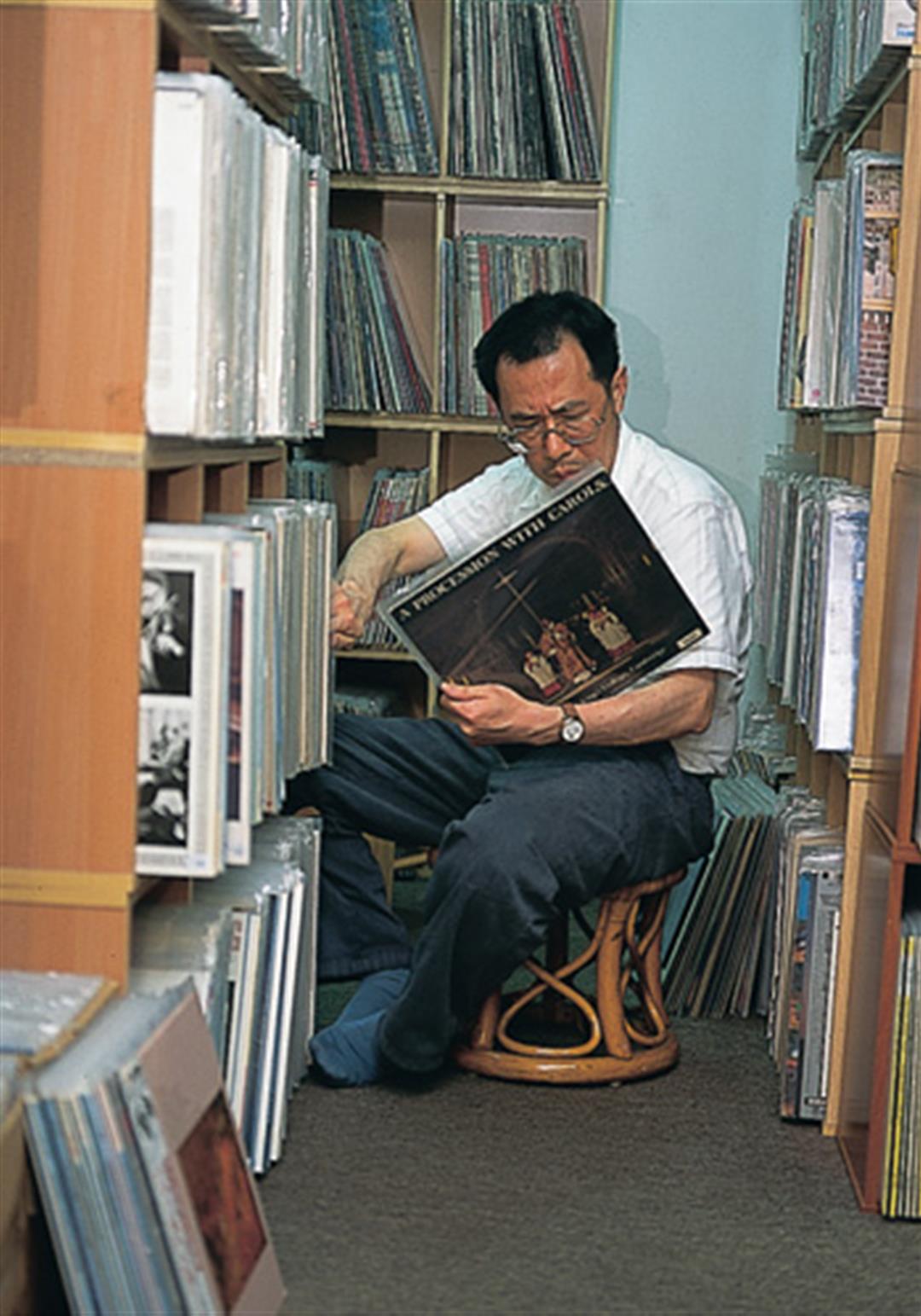Hsin-hsin Records
Before the vinyl revival, there were still many music fans who never lost their passion for vinyl. They'd buy LPs at flea markets and tiny second-hand shops where they'd meet with like-minded individuals, or they'd bid for classic albums in online auctions.
How many LP listeners are there in Taiwan? Vinyl enthusiasts find it hard to answer this question. Sung, who's been in the business for ten years, estimates that the number is currently around 30,000, and that they are of the elite. His observation has been that his customers tend to be mostly university professors with money, free time, and taste. Next are doctors, musicians, and IT professionals.
Sung says there are three types of LP buyers. First, there are those around 50 years old nostalgic for their youths. Then, there are music lovers who can't find what they are looking for on CD so search for it on vinyl. Finally, there are audiophiles who are passionate about analog sound. There are also others who are drawn in by the album art or the detailed liner notes.
Performance Workshop Theatre director Stan Lai is the prototypical vinyl enthusiast. He's been collecting records for over 30 years and has more than 10,000. Before he started his theater troupe, he hosted a jazz show on BCC radio. Not only is he one of Taiwan's biggest promoters of jazz music, he's also one of its best blues singers.
How did he come to love records? Lai says, "This has a lot to do with how I grew up. I grew up in the 1960s, when most young people were into rock. I was an avid collector of rock records up until hard rock and heavy metal started to develop in the 1970s."
He remembers those days: "At that time, an album went for about NT$5. As students, we didn't have a lot of money so we would go to the cheapest places in the Chunghua Market, especially one called Hsin-hsin Records. All the students knew about one female employee there who was really cool and good-looking. In the early days you could listen to records before you bought them. As soon as a student would walk in, she'd slip a record out of its sleeve and with her expert hand put the needle on the track she thought would best get your attention. After letting you listen for five or six seconds, she'd take it off and ask if you wanted it. It was simple and quick, and amazing."

"I found it!" Music fans in Hsiao Sung Records search for treasures.